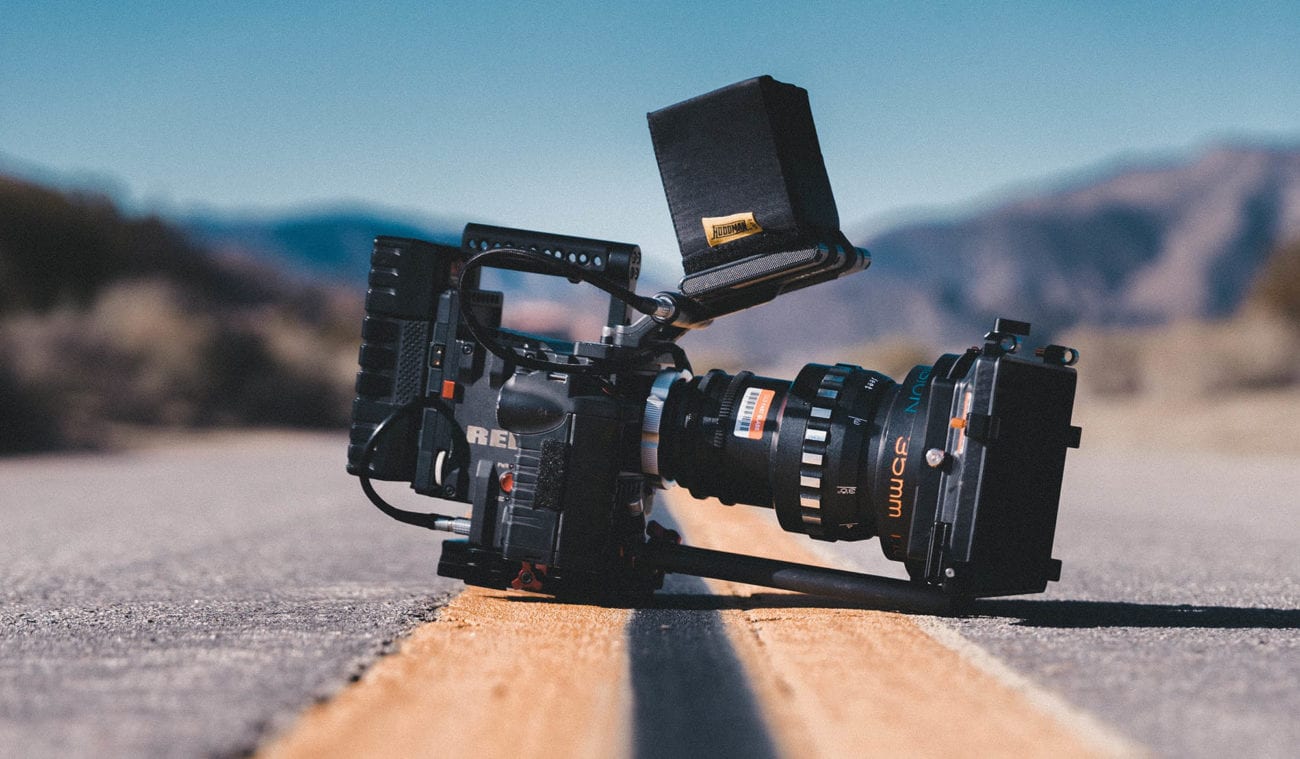
Facebook’s out: The best social media platforms for indie filmmakers
Promotion may be the last thing on an aspiring filmmaker’s mind when they’re crafting their hopeful masterpiece, but the marketability of a film through social media is becoming more and more of a concern. It’s practically impossible to go dark on social media platforms and remain successful, but the options available don’t always make it easy.
Although Facebook has been working on its video features – in December promising users more frequent “distribution of videos from publishers and creators that people actively want to watch” – CEO Mark Zuckerberg admitted more recently that the video feature had been deemphasized. What used to be a promising dissemination method for short films, vlogs, and advertisements has now been squandered by a mismanaged and cluttered attempt to see what sticks.
Indie filmmakers everywhere are becoming increasingly disillusioned by Facebook’s indecision over how much to support its users. Its “boost” feature has come under fire for not properly representing content creators despite being used by directors & artists with close to, or exceeding, 100,000 followers.
Indiewire’s article on Facebook’s disloyalty highlights a number of upcoming filmmakers who have been left with a stifled voice by their advertising policies. Director Qasim Basir recently expressed frustration with his experience on Facebook, claiming, “Now I put up something, they immediately say $20 to get this to 5,000 more people.” This is despite the fact Basir’s film Mooz-Lum already has almost 100,000 followers on Facebook.
Rather than being screwed by Facebook’s algorithms and a “boost” system that drains your wallet without any guarantee of a successful audience reach, we have a few social media suggestions for you to increase your coverage, viewership, and profits with far more success than Facebook.
Letterboxd

Though this website won’t make you any life-altering connections, it’s undeniably the best social media platform for logging and reviewing movies out there, and we highly recommend starting your film journal here as soon as possible. It allows you to follow and comment on fellow users’ reviews, and is one of the most widely-used and friendliest platforms available for film fans.
If you start to dig a little, you may come across some recognizable faces, as well as a number of eager new filmmakers such as yourself. Start by following Eli Hayes – a passionate reviewer and an experimental short director with a number of films available to watch for free – and you’ll soon cultivate a community who’ll introduce you to some of your favorite films & directors you never knew existed.
You can also stumble across the odd famous face. The site’s most high-profile user is probably Sean Baker (Tangerine, The Florida Project), but it also plays host to Roger Avary (co-screenwriter of Pulp Fiction) and Jordan Horowitz, the producer of La La Land – you know, the guy who held up Moonlight’s Best Picture card after his own film unceremoniously missed out on the prize. Research a little further and you can also find some of your favorite film critics logging movies and interacting with their readers.
Letterboxd won’t monetize the likes you get for your amateur reviews or reward your follower count, but it’s easier to gain followers than Twitter and it won’t punish you for advertising work to a more receptive audience.

It may be more difficult to take advantage of trends and hashtags to expand your list of followers, but it’s vastly more rewarding once you’ve done so. Twitter exploded in popularity when it was first released and has continued to grow, to the extent it’s now pretty unusual if you don’t find your favorite actors & filmmakers tweeting about their current projects and day-to-day activities.
In addition to the enticing promise to connect you to your favorite artists, Twitter’s an invaluable tool to make connections and discover what your local area has to offer in the world of indie filmmaking.
Instantaneous, up-to-date, and more streamlined than Facebook, Twitter ditches the “boost” function and delivers content as it happens, even consolidating the most important tweets in case you missed them. Every news outlet can be found on Twitter for easy access to the most important articles and it can grant access to popular filmmaking & screenwriting groups that would have been completely lost on Facebook.

LinkedIn doesn’t let you use hashtags to get in on the latest meme trends, but instead is an absolutely essential (and more professional) tool for any filmmaker looking to get hired and distributed. The platform, available as a handy app, works almost like an instantaneously accessible résumé.
You can add professional skills for endorsement and develop a list of previous experiences in your field. Once you’ve been employed or assigned yourself to a particular skill set, LinkedIn’s algorithms will recommend connections with both people you may personally know as well as industry professionals.
In addition to being a vital social media platform, the site also offers a number of free classes and videos for skill development. Ranging from a few minutes to a couple of hours, you can find a whole range of videos on filmmaking, media presence, writing, interviewing techniques, and marketability.
Kickstarter

One of the trickiest obstacles to get over as an independent filmmaker is working out where the money’s coming from. Film production is an expensive venture and some of the best screenplays can fail as soon as they’re put to celluloid (or digital) if there’s no budget.
Although worthwhile distributors still exist in the likes of A24 & Sony Pictures Classics, most studios will argue taking a risk on a small feature that may not make big bucks is not monetarily viable. With a landscape that punishes original films for daring to be different and subversive, crowdfunding is becoming an increasingly popular tool indie filmmakers seeking financial assistance.
Though it’s proven more successful for the gaming world, Kickstarter has quickly become the place to turn for exciting new movie projects. Previous successes include Zach Braff’s Wish I Was Here and the continuation of Kristen Bell’s series Veronica Mars in a feature length movie. Overall, it’s a good place to start for the aspiring indie director with a great idea and empty pockets.
Vimeo

There’s no use in writing, shooting, and editing a magnificent motion picture without anywhere to screen it. While some small filmmakers have been lucky when submitting their work to festivals, it’s better to find somewhere online to host it first in order to generate some positive feedback before throwing it to the lions of the industry.
A few years ago, YouTube was considered the number one online video platform for filmmakers. However, following a series of controversies including its continuing support for bloggers such as Logan Paul, artists are now increasingly looking to Vimeo to promote their work.
No longer bound by ads and views to earn their money, filmmakers can add a Tip Jar function to their videos or apply a payment restriction to grant access. There may be more restrictions for viewing content than YouTube, but it puts power directly into the hands of the artists.
If you want to gauge the quality of Vimeo’s best content, head on over to its Staff Picks, in which the site’s administrators choose amazing short films to showcase on their front page. Not based on views, comments, or whether a video happens to be trending, Vimeo has good taste and an ear to the ground in regards to what constitutes as quality filmmaking. If you’re skilled enough to land yourself a position amongst Vimeo’s staff picks, it could do wonders for your filmmaking career.





